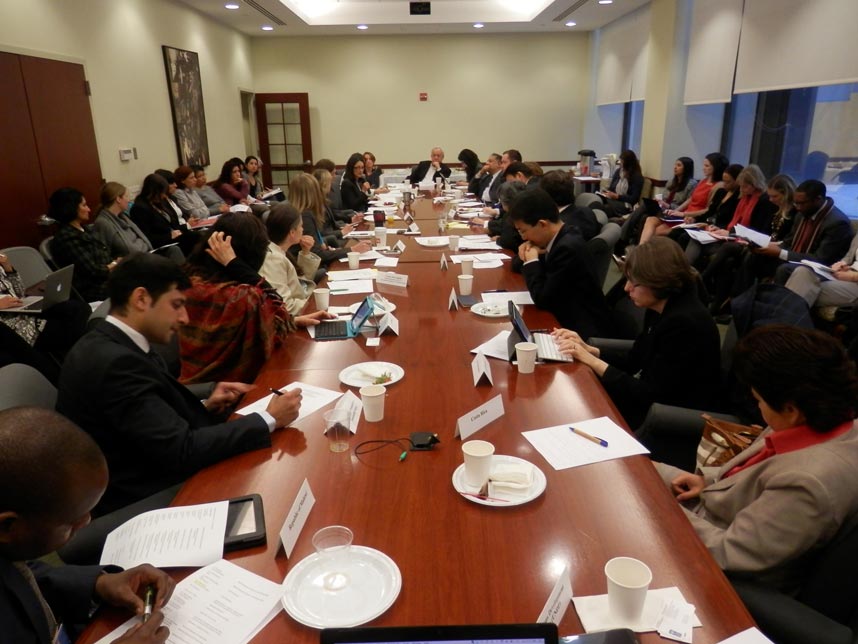Throughout history, humanity has grappled with conflicts, wars, and divisions. Analyzing the question, “Will humans always fight?” through the lens of Bahá’í teachings can provide profound insights into the potential for peace and unity among peoples. Bahá’í beliefs, derived from the teachings of Bahá’u’lláh, advocate for fundamental principles that aim to eradicate the root causes of conflict. This article will explore the diverse dimensions of Bahá’í perspectives on peace, inner transformation, social justice, and collective responsibility, while offering a guideline for those seeking to foster harmony in their lives and communities.
Firstly, it is crucial to understand the Bahá’í conception of peace. In this paradigm, peace is not merely the absence of war or conflict; rather, it is an active condition that necessitates the establishment of justice, the promotion of love, and the cultivation of virtues within individuals. Bahá’í teachings emphasize that true peace arises from the transformation of human hearts, a notion inspired by the belief in the inherent nobility and potential of every individual. Thus, before external peace can be achieved, an inner quest for understanding, compassion, and moral rectitude must first occur.
The path to inner peace begins with self-reflection and spiritual development. The Bahá’í faith stresses the importance of prayer and meditation as essential practices. These practices enable individuals to cultivate virtues, such as patience, forgiveness, and humility. By nurturing these qualities, individuals create a positive ripple effect, influencing their families, communities, and ultimately society at large. Consequently, an individual committed to personal development cultivates environments resistant to conflict.
Furthermore, the principle of the oneness of humanity is a cornerstone of Bahá’í teachings, serving as a foundation for global peace. The recognition that all humans belong to one family entails a profound commitment to dismantling prejudices that perpetuate strife. This principle promotes unity in diversity, emphasizing that by celebrating differences rather than allowing them to foster division, humanity can achieve a cohesive society. Efforts to cultivate understanding among diverse cultures and lifestyles are crucial steps toward a comprehensive global peace.
Bahá’í teachings also advocate for social justice as a fundamental component of peace. Inequities that lead to social unrest must be addressed through education, equitable resource distribution, and the elimination of poverty. The belief that justice is the bedrock of peace is paramount; therefore, the responsibility of Bahá’ís extends beyond personal conduct to encompass engagement in social action. In this regard, individuals are called to identify injustices and work collaboratively to promote measures that uphold equality and fairness. Social initiatives addressing issues such as gender equality, environmental sustainability, and the needs of marginalized communities are vital in fostering a culture that prioritizes peace.
Engagement in community service represents another vital aspect of living out Bahá’í principles and fostering peace. By participating in grassroots efforts that address the challenges faced by local communities, individuals manifest their commitment to the collective good. Such actions cultivate environments wherein fellowship and solidarity supersede strife and division. Furthermore, collaborative community efforts provide a practical platform for individuals to develop relationships, build trust, and strengthen bonds with one another, transcending the barriers that breed conflict.
The Bahá’í faith also underscores the significance of consultation as a method for conflict resolution. This distinct approach, rooted in the spirit of unity and cooperation, invites all voices to engage meaningfully in discussions. By fostering an atmosphere of mutual respect, consultation allows for the exploration of diverse perspectives, ultimately guiding groups toward consensus-based decisions. Developing the skill of constructive dialogue is instrumental in addressing disagreements amicably, thus averting potential conflicts.
Moreover, fostering a culture of peace necessitates the cultivation of education and knowledge. Education emerges as a fundamental tool in shaping a new generation capable of appreciating the value of peace. Bahá’í teachings advocate for universal compulsory education which not only equips individuals with essential skills but also inculcates ideals of tolerance, empathy, and collaboration. The transformative power of education functions as an antidote to ignorance, providing the necessary framework for individuals to engage thoughtfully with the world around them.
Acknowledging the interconnectedness of all actions and their consequences prompts individual and collective accountability. Bahá’í teachings implore individuals to recognize their role as stewards of the Earth and agents of change. This acknowledgment engenders a sense of responsibility not merely toward oneself, but toward others and the environment. A commitment to sustainable practices and the promotion of social equity reflects the insatiable human yearning for peace and harmony.
In conclusion, the Bahá’í perspective on the question of whether humans will always fight suggests a resounding potential for peace. Through inner transformation, the embrace of social justice, community engagement, constructive consultation, and education, individuals can transcend the circumstances that have historically fostered conflict. The teachings provide a clear pathway for those desiring to cultivate peace and unity in their own lives and communities. While the journey toward peace is fraught with challenges, the vision of a world united under principles of justice and love remains an attainable goal—one that can inspire humanity to reach its highest potential.
